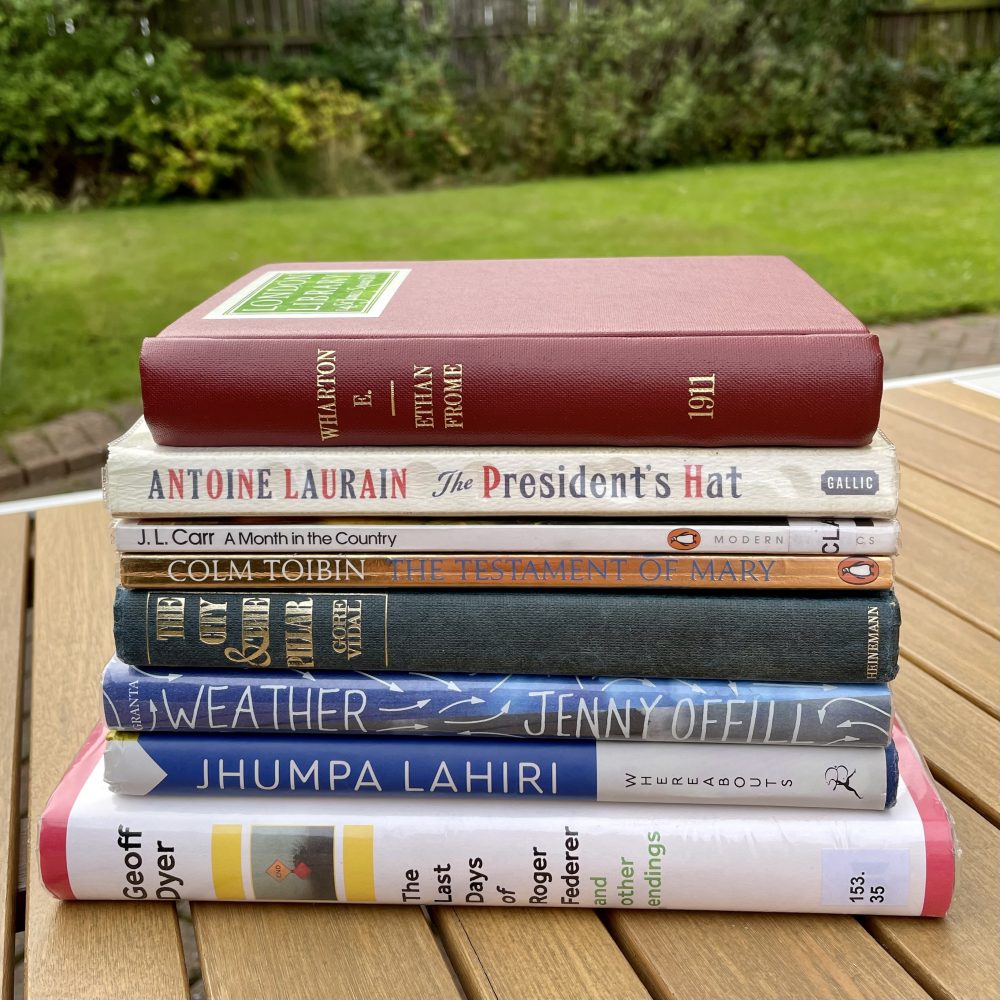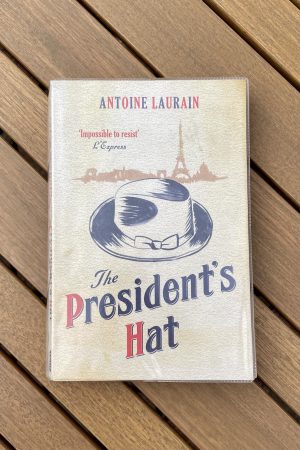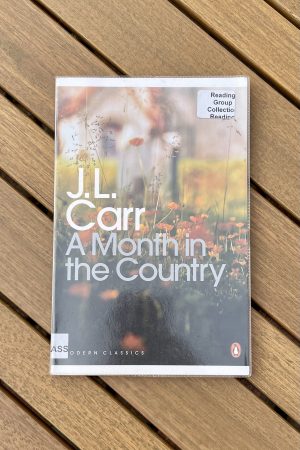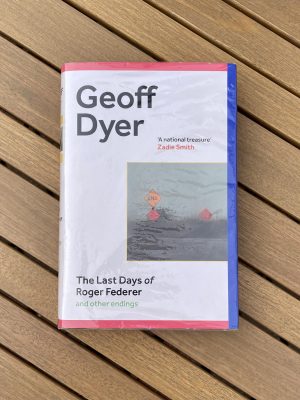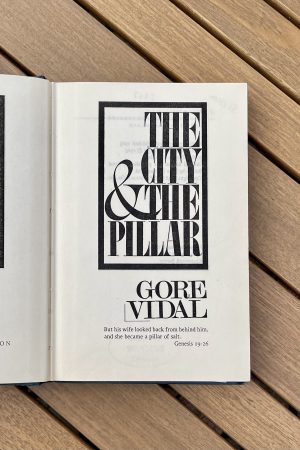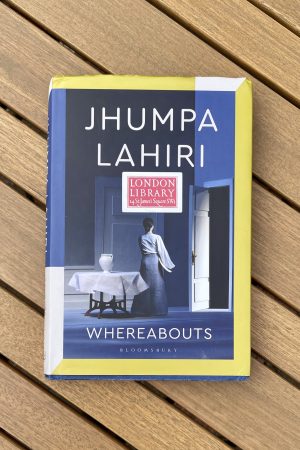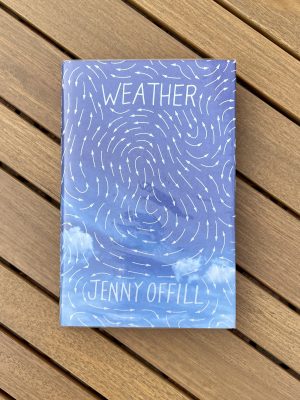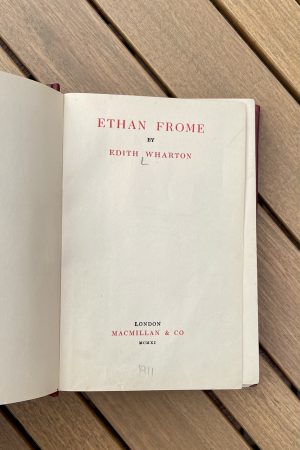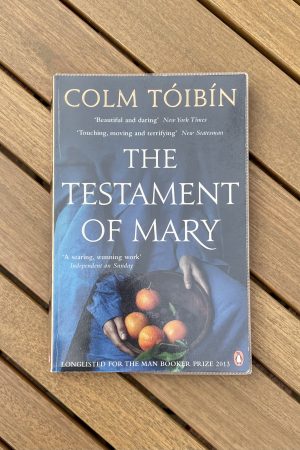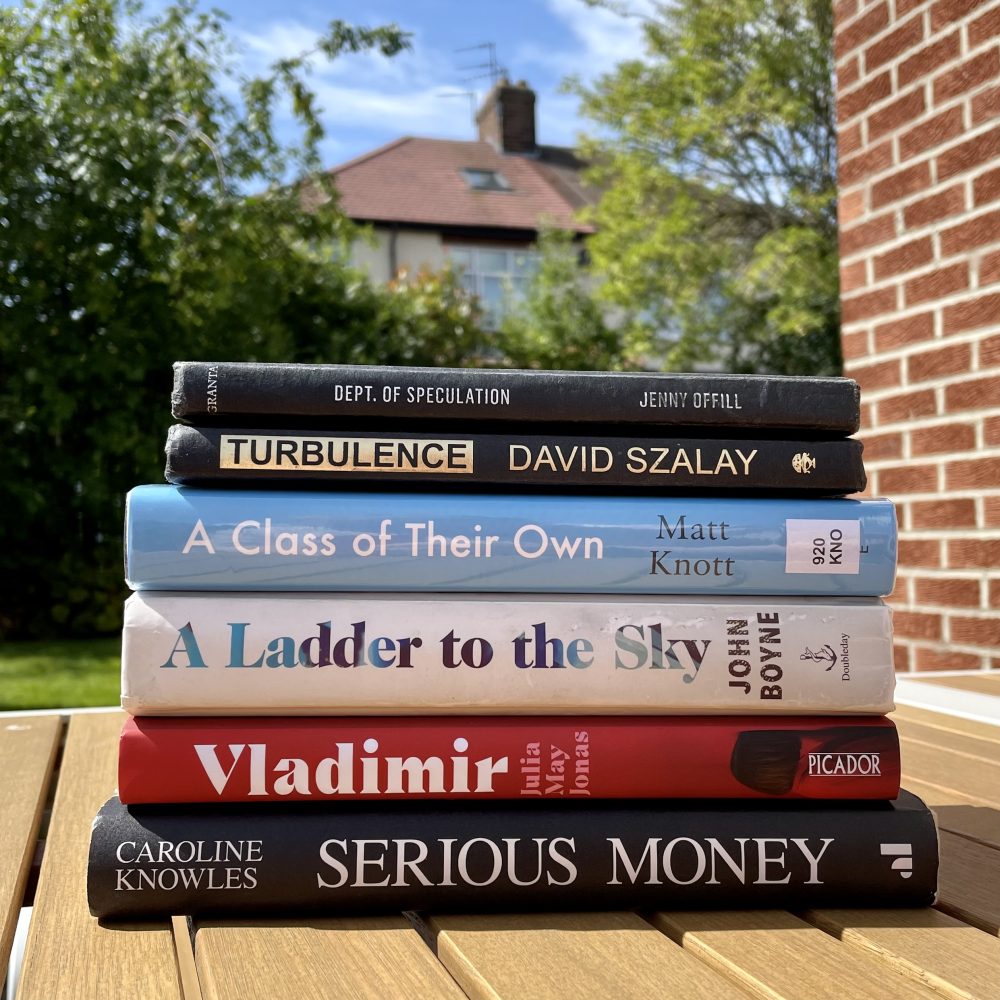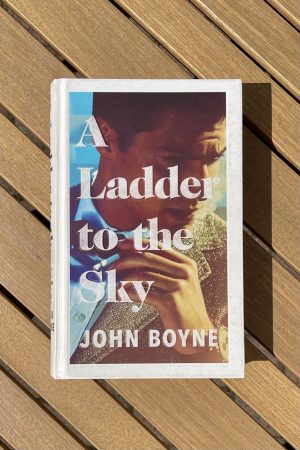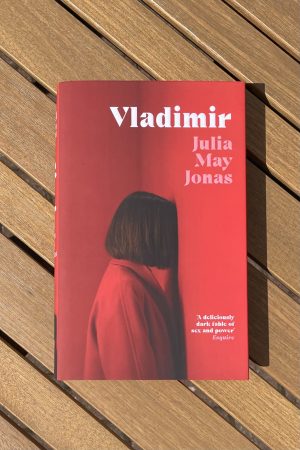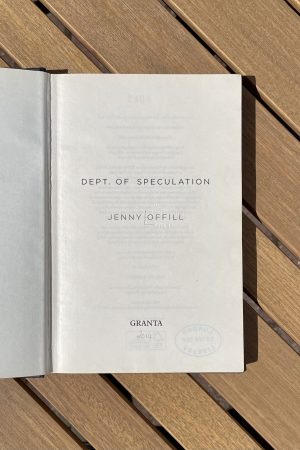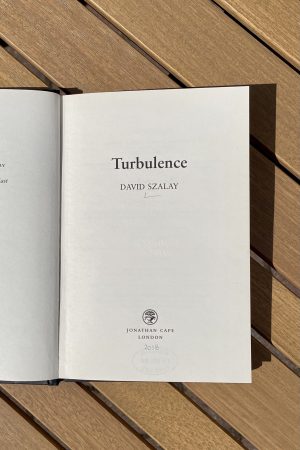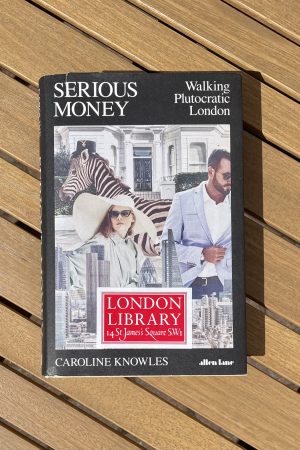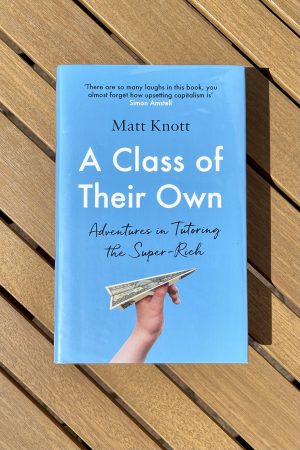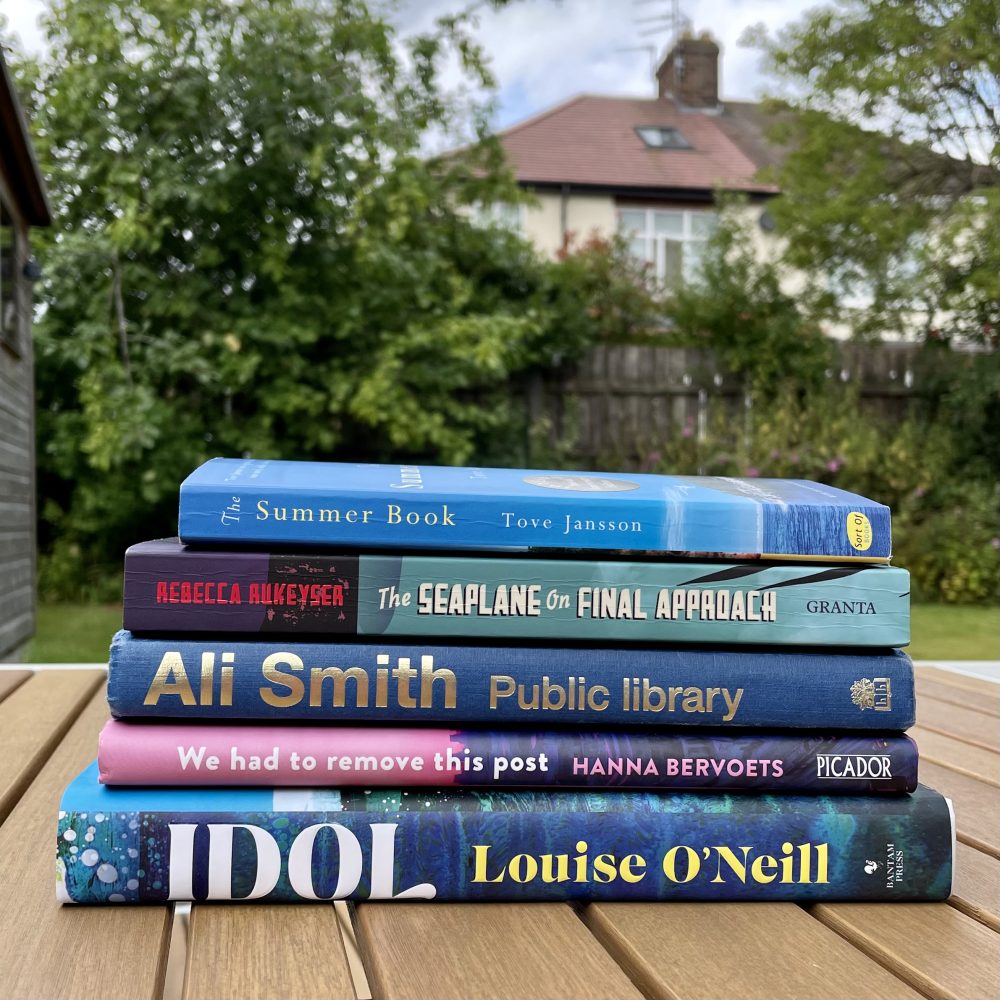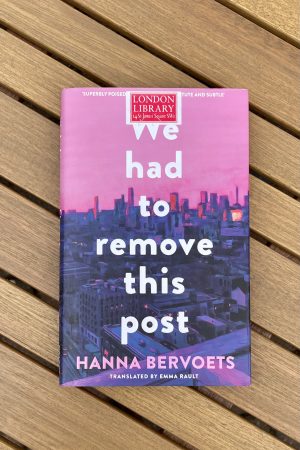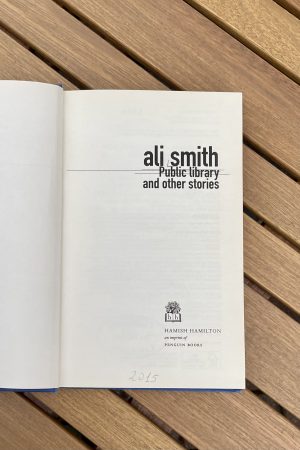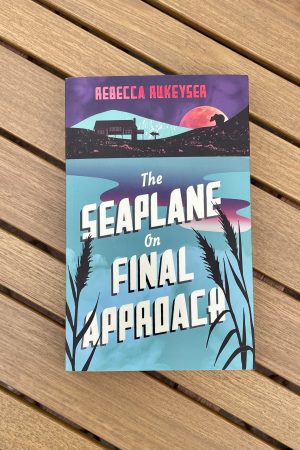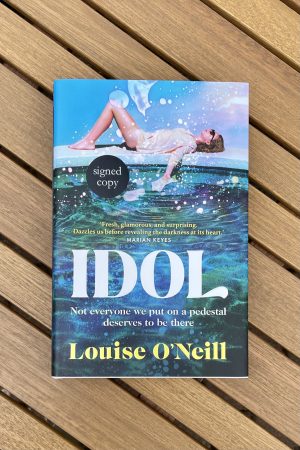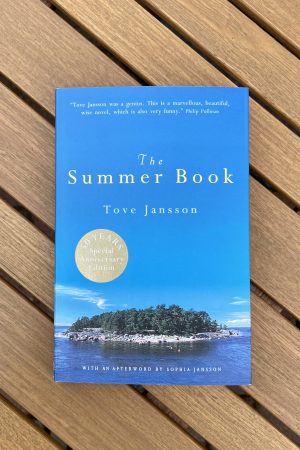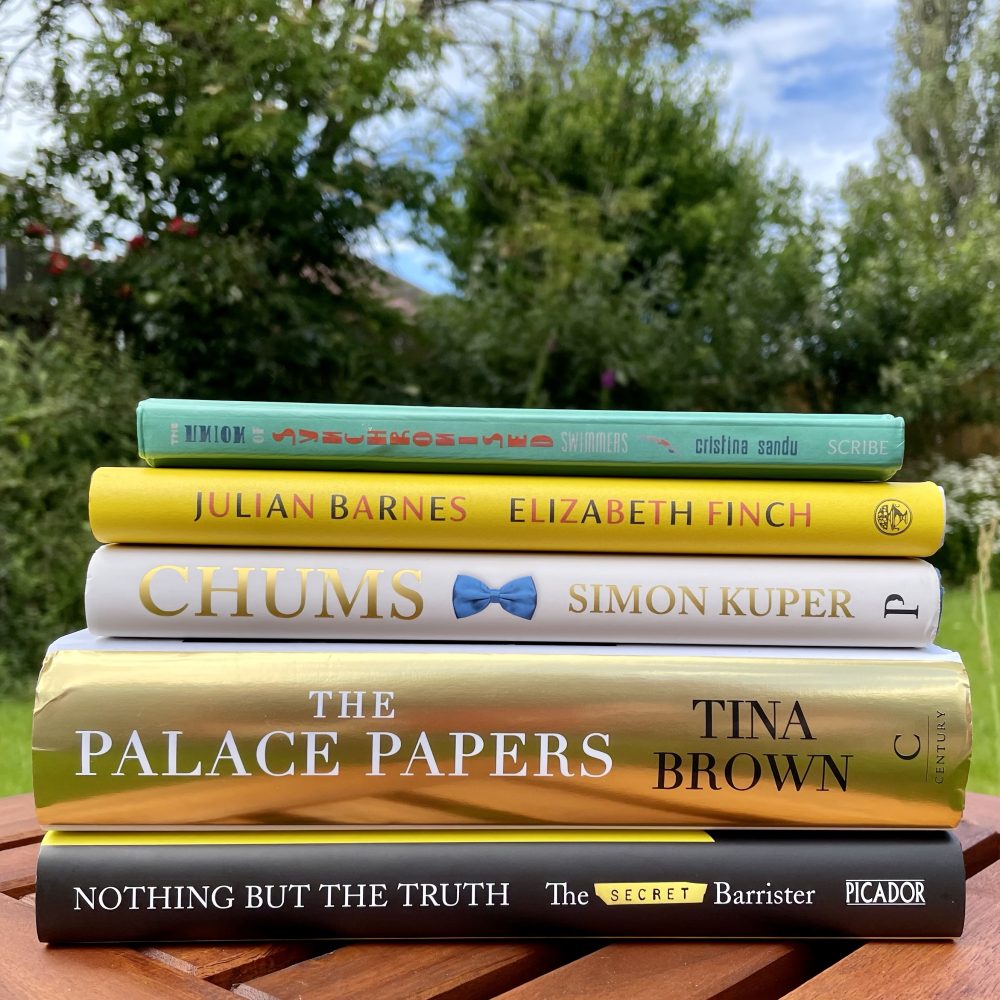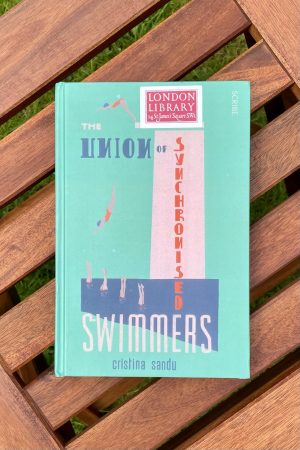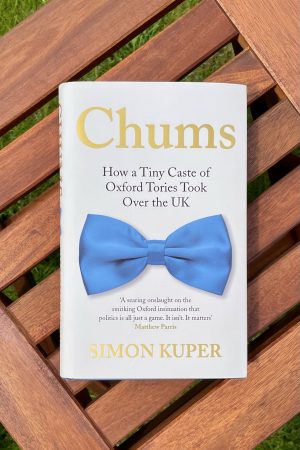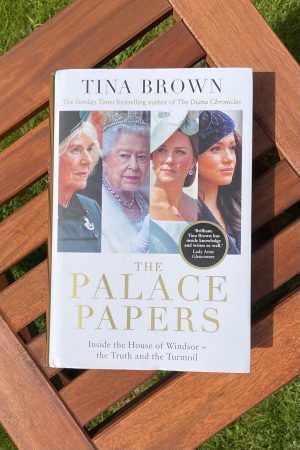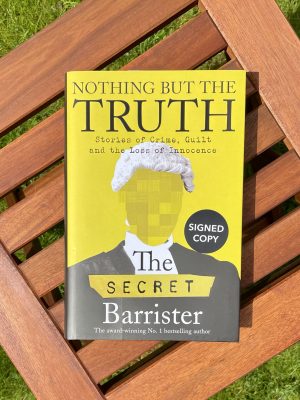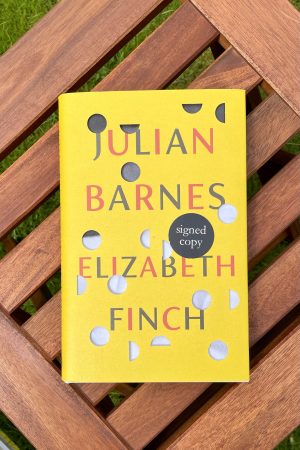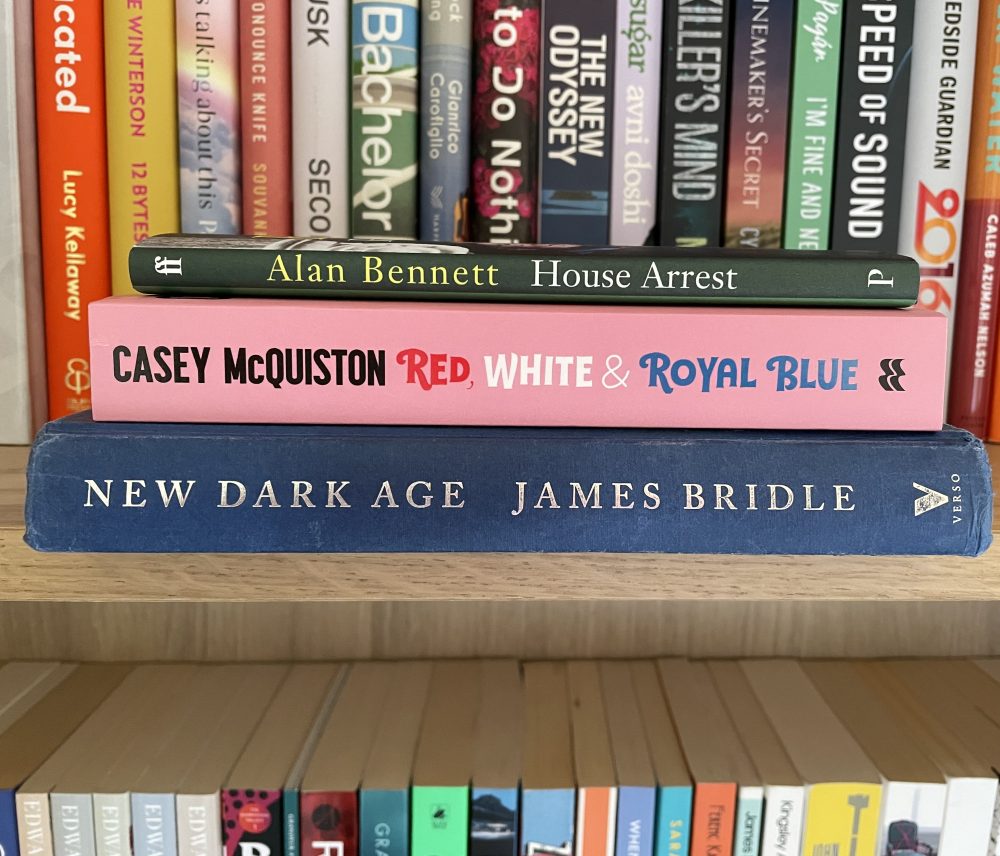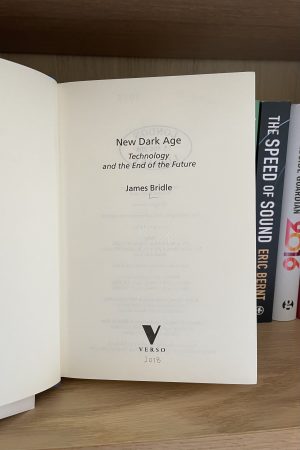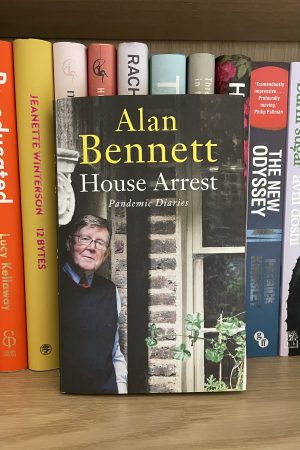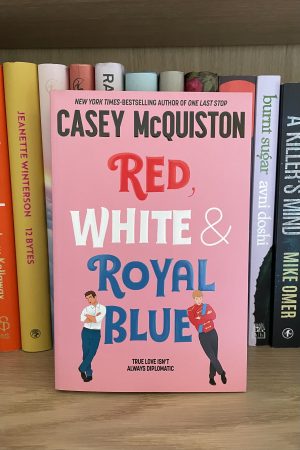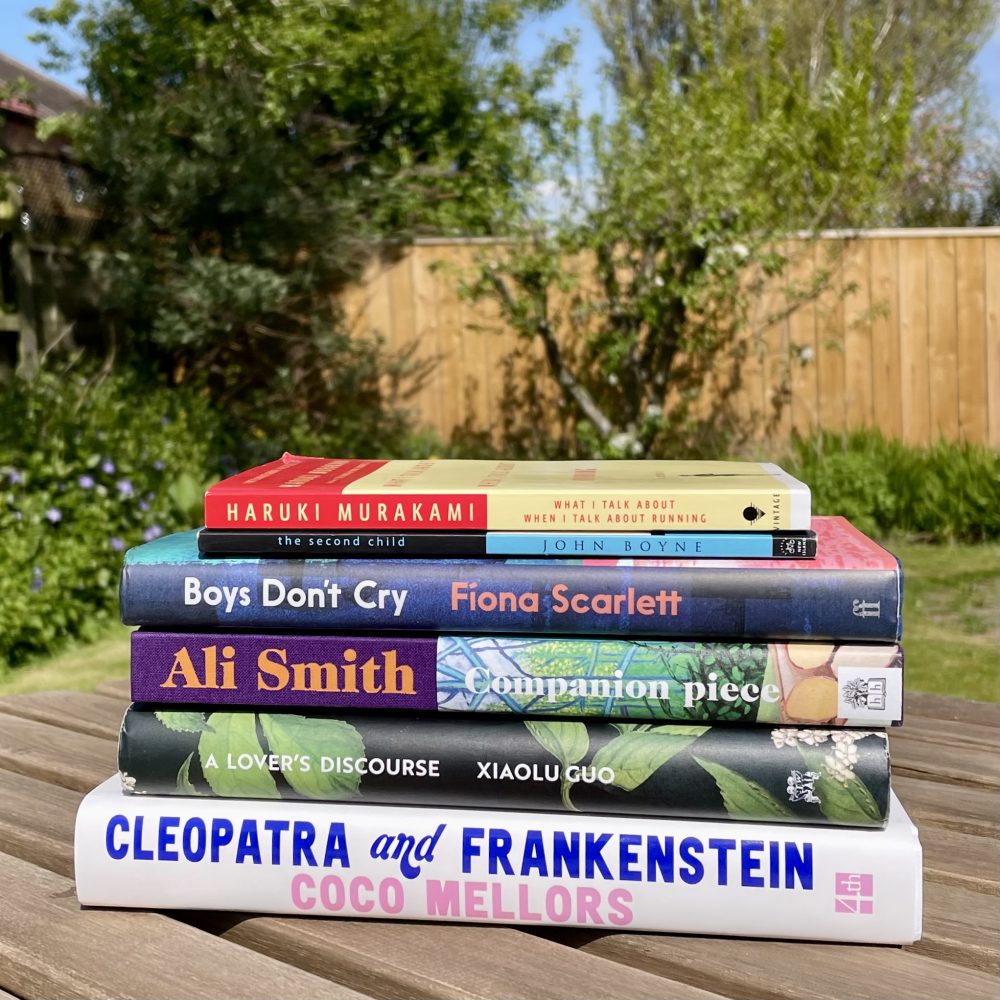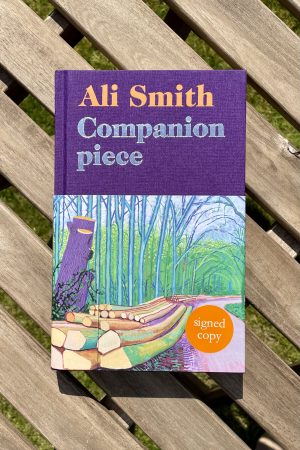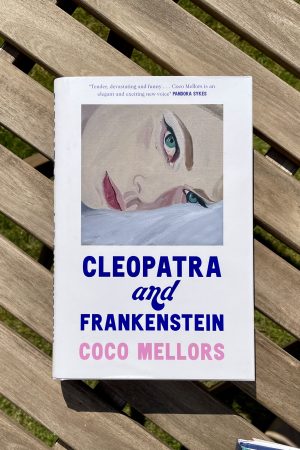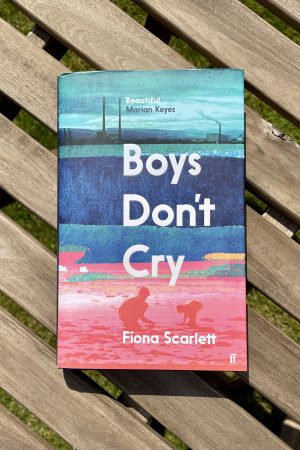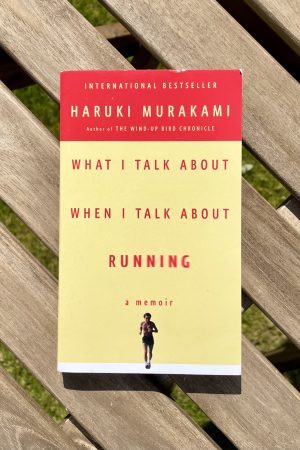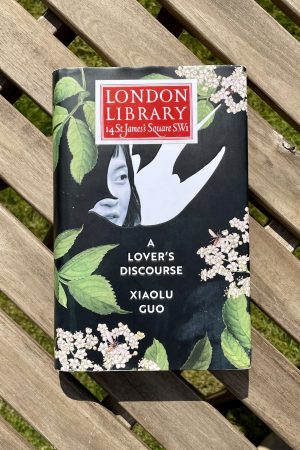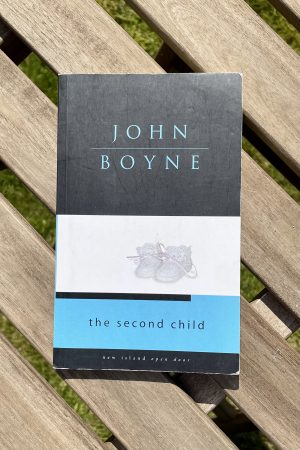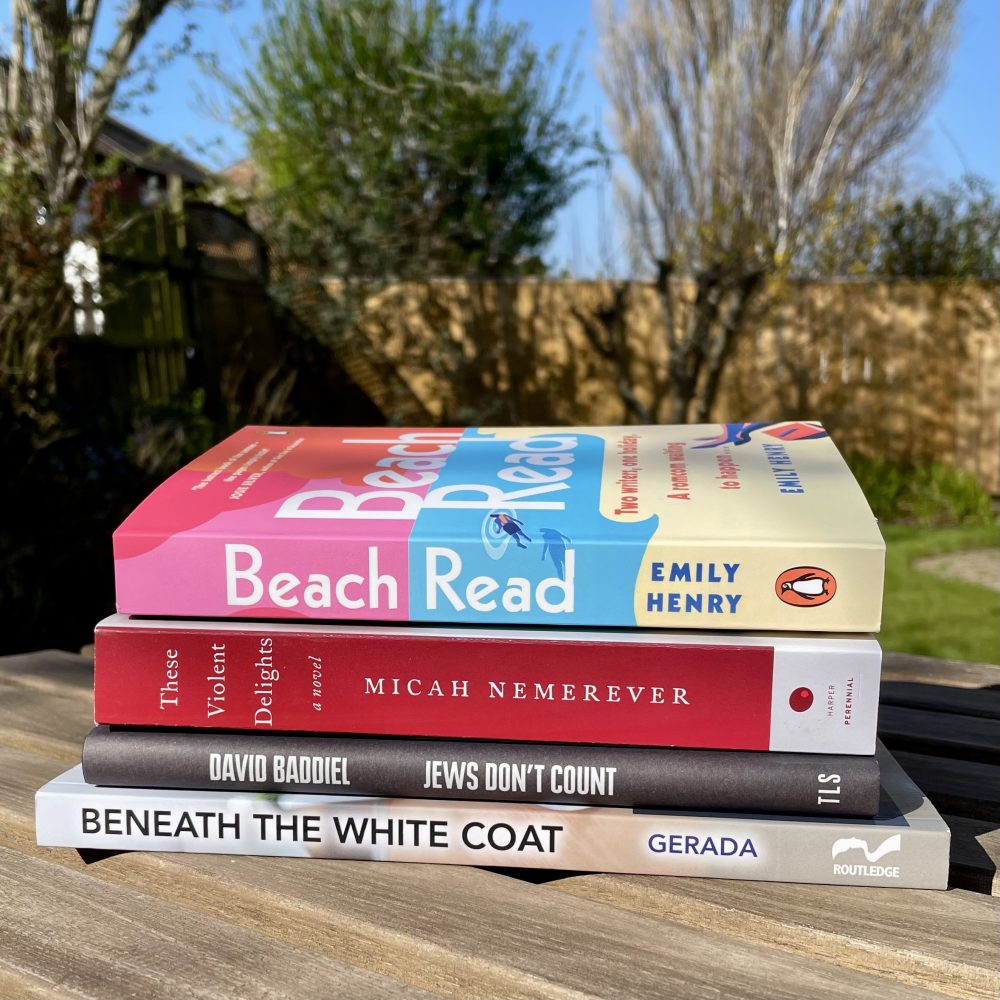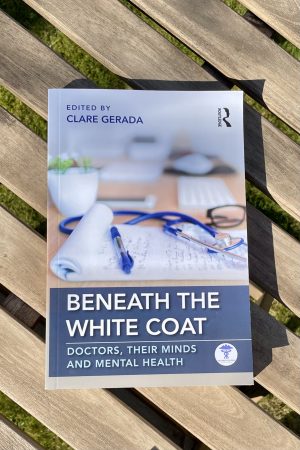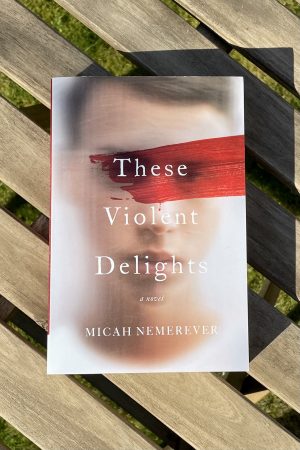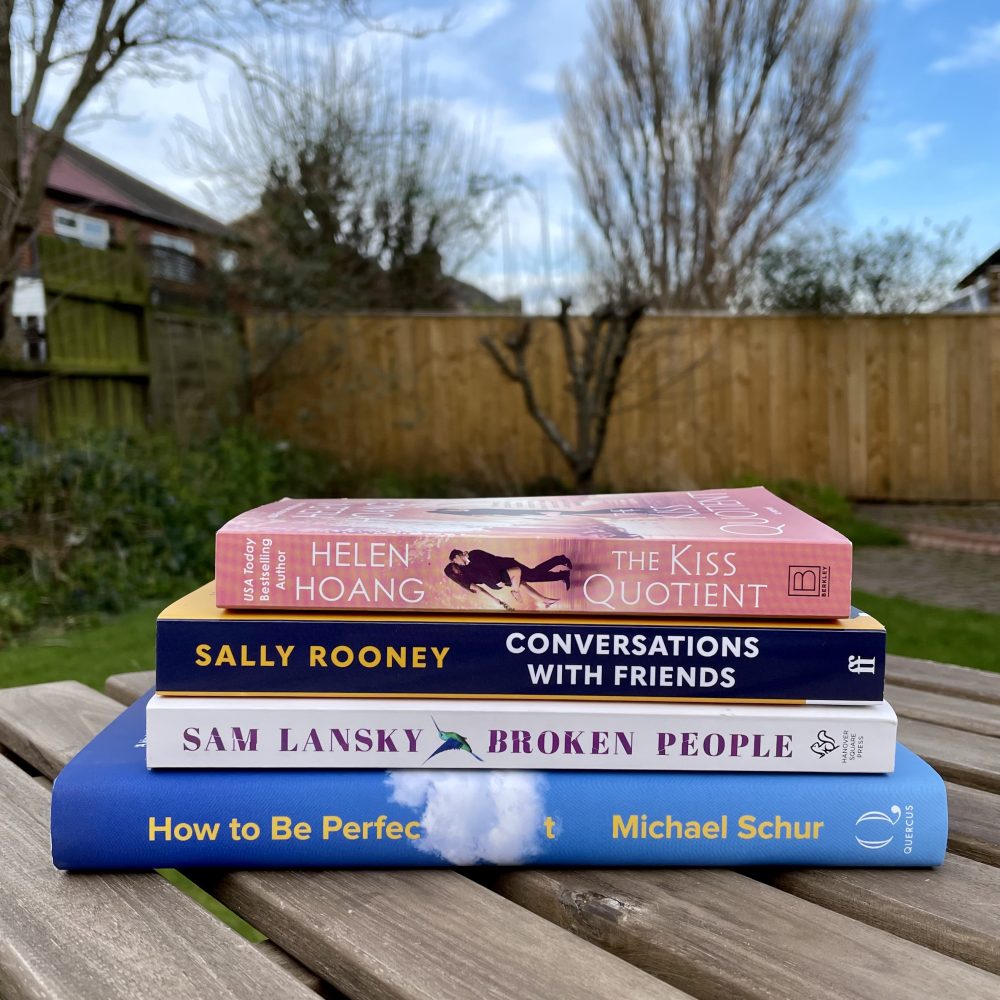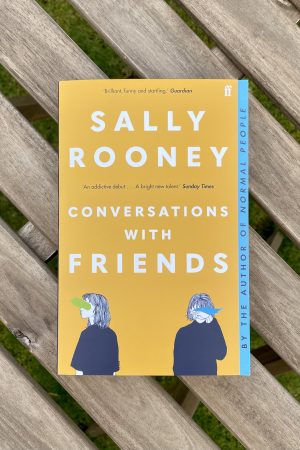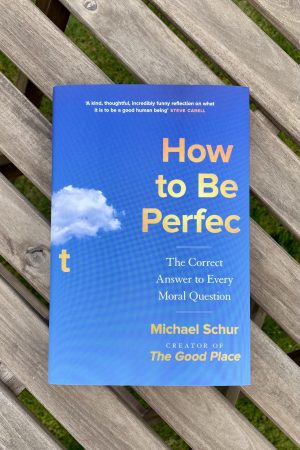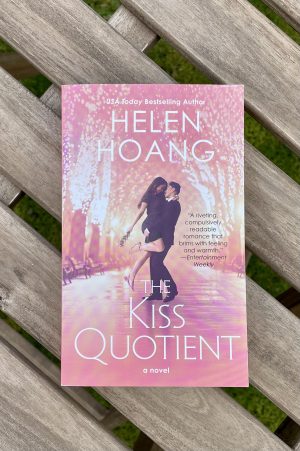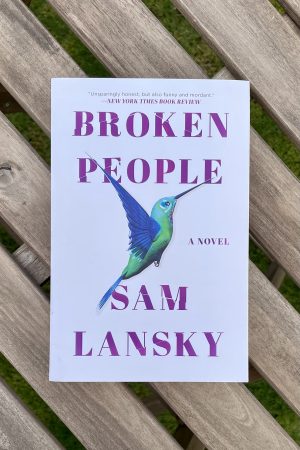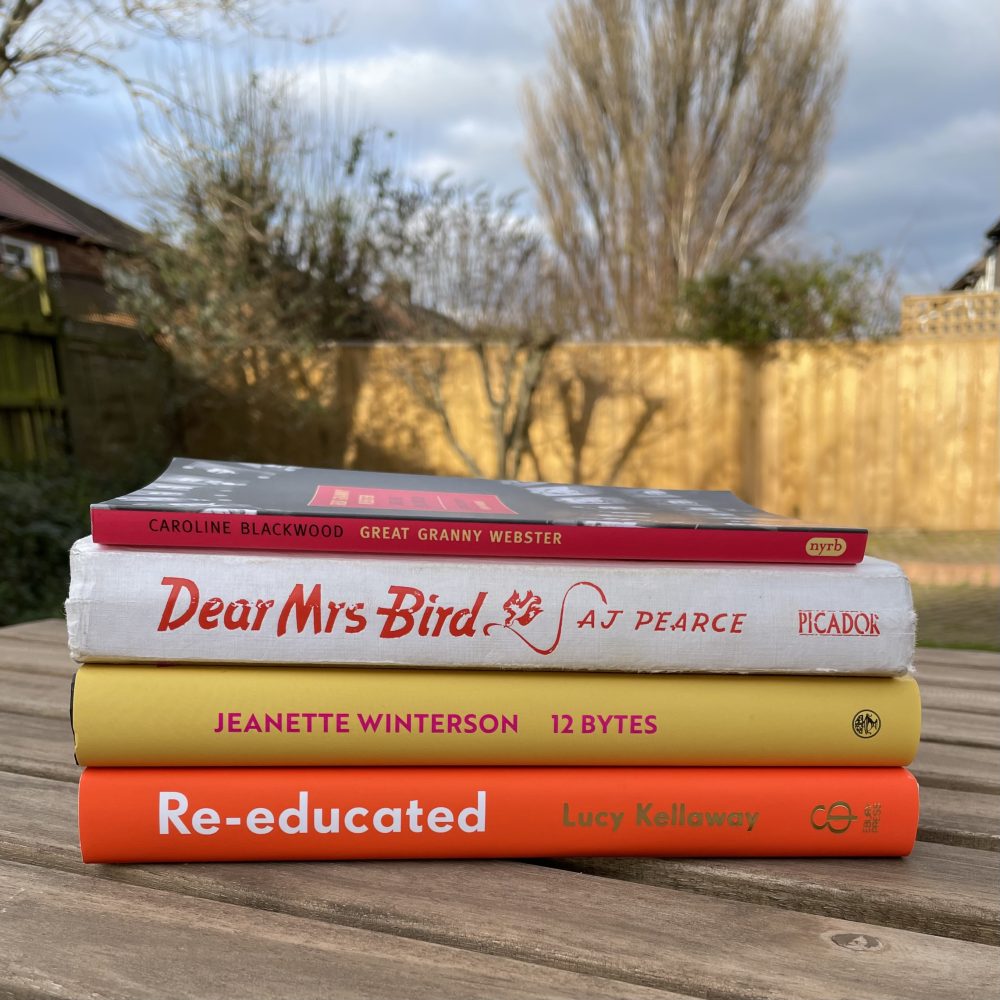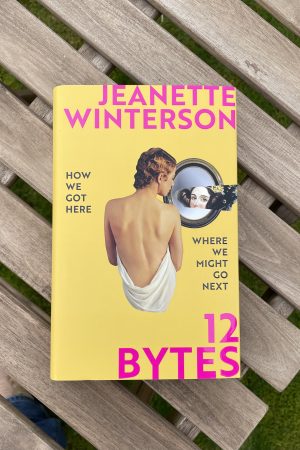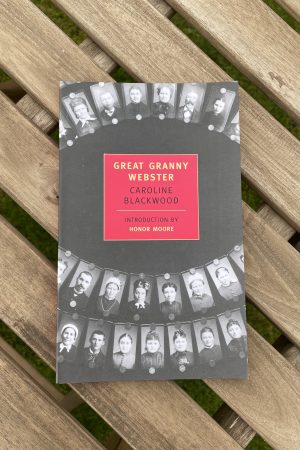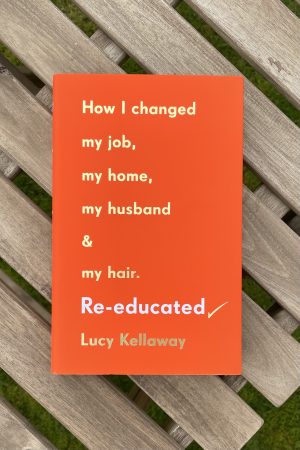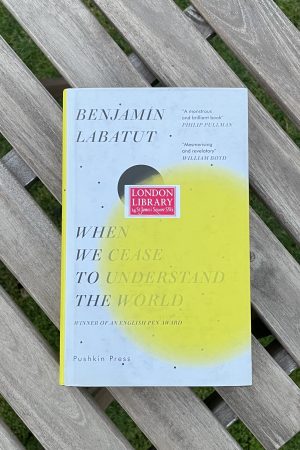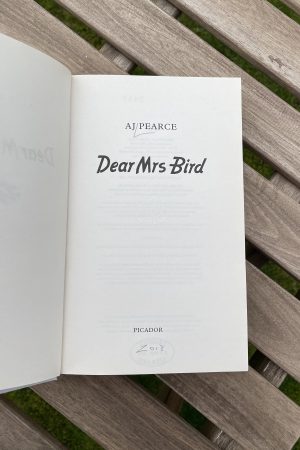What I’ve been reading this month
I’ve five books to mention for October, all by authors I’ve never read before.
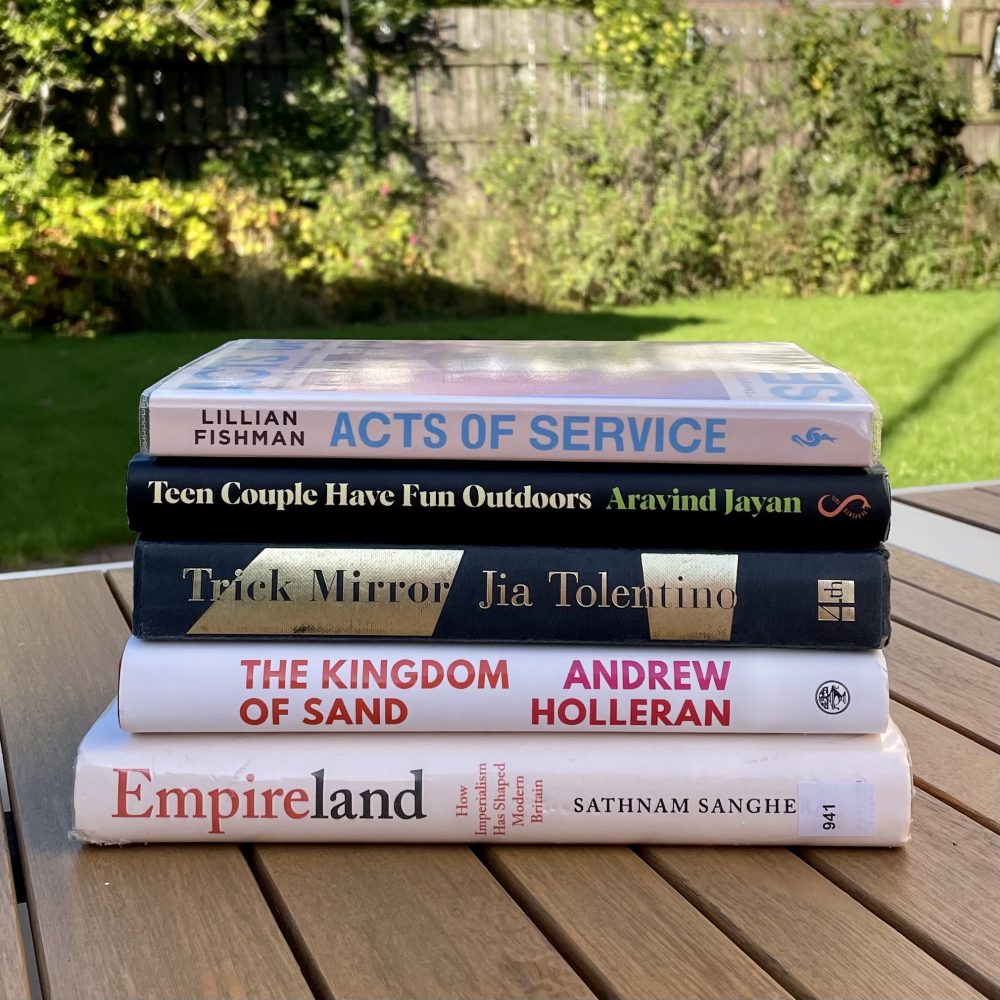
Teen Couple Have Fun Outdoors by Aravind Jayan
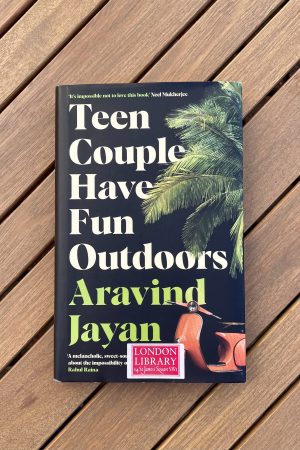
I picked this up after seeing a positive review in the TLS. It is a 200-page first novel, a comedic middle-class family drama set in the Indian city of Trivandrum. The older brother of the narrator has been covertly filmed engaging in “sex-adjacent activities” with an acquaintance / girlfriend, and the video quickly spreads online. Our narrator is left to arbitrate between his brother and his parents as their relationship essentially breaks down. At heart, the book seemed to be about the collision between the modern world and traditional social values.
I found it easy to read, but the melodramatic aspect of focusing almost entirely on the relationships within one family was a little wearing after a while. Given the grandeur of the theme, I think I would have enjoyed seeing it explored on a larger canvas. Jayan’s exploration of the personal, family effects had its impact lessened for me by the humour which ran throughout.
Yet, I still enjoyed this novel, and I found it interesting to see the similarities in family values and relationships between India and the UK.
With thanks to The London Library for lending me a copy.
Acts of Service by Lillian Fishman
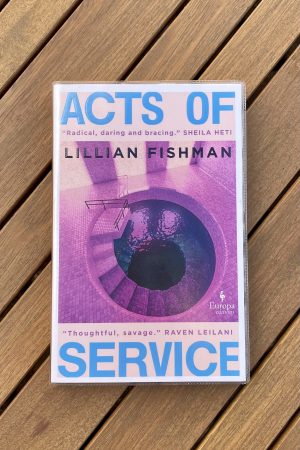
I picked up this recently published novel after seeing a review in the TLS. The opening line is, “I had hundreds of nudes stored in my phone, but I’d never sent them to anyone.”
I have no nudes in my phone, and no desire whatsoever to set about changing that; I knew immediately I was in for an intriguing journey into the life and mind of a character with an entirely different outlook on life. This book is the story of an extraordinarily complex web of sexual and/or romantic relationships. Girl 1 is in a relationship with girl 2, seeks a bit on the side with girl 3, who invites her into a threesome with her boyfriend and boss, boy 1, girl 1 leaves girl 2 for boy 1 (or possibly for girl 3 or possibly for both or neither). And that’s only about the first quarter of the book.
There’s a lot in this book about power and consent and gender dynamics, but really, at its heart, this is a book about belonging, understanding, and the different qualities and needs that develop when we spend time with different people. Fishman has wise and interesting things to say on these subjects, which make this first novel worth reading, though I wonder if her plots might become a little less complicated over time and allow the main themes a bit more space to breathe.
With thanks to Newcastle Libraries for lending me a copy.
Trick Mirror by Jia Tolentino
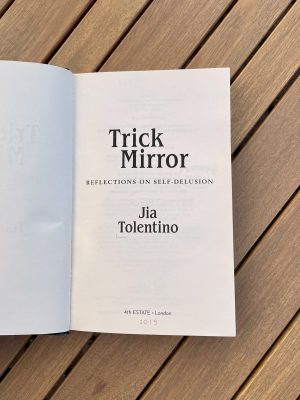
This is a 2019 collection of nine essays rooted in the author’s personal experiences and loosely connected by the theme of self-delusion. Tolentino is a Canadian-born writer who lives in America. She is in her thirties and contributes to a variety of periodicals, including The New Yorker and websites such as Jezebel. I picked up this book because the Amazon algorithm pushed it at me, and because I saw it had been so widely praised in the press (as both a Times and Guardian ‘Book of the Year’).
I enjoyed most of the essays in this collection, but especially enjoyed Tolentino’s essay on marriage (“I Thee Dread”), probably because her views roughly align with my own. I was particularly struck by her observation about how traditional gender-segregated celebrations of engagement remain common in modern Western society: I’d never viewed hen/stag parties in that light.
I also especially enjoyed Tolentino’s reflections on the interaction between social media and self-delusion (“The I in the Internet”). Her account of how her own memory of participating in a reality television show differed from the filmed, documented reality (“Reality TV Me”) was a novel twenty-first century take on the much-explored difference between reality and recollection.
I think these essays are best enjoyed as standalone pieces: I’m not convinced that they coalesce into a particularly coherent whole. Some of the cultural references were also beyond me (I couldn’t pick Gwyneth Paltrow or Winona Ryder out of a line-up, let alone understand what it meant by being “a Winona in a Gwyneth world”) but that’s hardly the author’s fault.
With thanks to The London Library for lending me a copy.
Empireland by Sathnam Sanghera
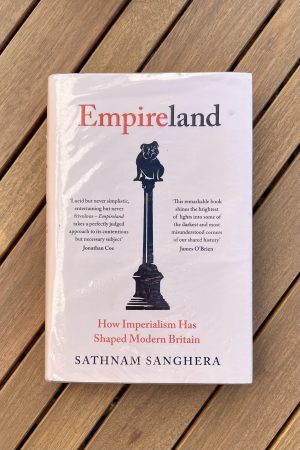
Published in January 2021, this is an account of the history of the British Empire, with a particular focus on how that history continues to influence the country today. I know Sanghera best from his writing in The Times.
This book introduced me to a lot of history, and Sanghera’s reflections on how little of this is taught in schools resonated with me… though as I stopped studying history somewhere around the age of 13, my knowledge of all things historical is a bit sketchy.
Sanghera’s discussion of the ways in which Empire continues to influence our political classes echoed other books I’ve enjoyed lately, such as Richard Beard’s Sad Little Men, and there were a few references to Fintan O’Toole’s excellent Heroic Failure.
I particularly liked Sanghera’s rejection of simplistic narratives of whether the Empire was good or bad:
It is puerile to reduce imperial history to a matter of ‘good’ and ‘bad’: trying to weigh up the positive and negative in this way is like defending the morality of kicking a random old man in the shins one afternoon because you helped an old lady across the road in the morning.
Sanghera’s tone often seems to me to be one of justifiable (and justified) personal anger at our failure to reconcile or even recall the ‘bad bits’ of British history. The last section of the book, though, is surprisingly uplifting and optimistic: in this part, I particularly enjoyed the reflection that expanding history curricula to include more Imperial history is basically arguing for more complete history, not something special or siloed from everything else.
With thanks to Newcastle Libraries for lending me a copy.
The Kingdom of Sand by Andrew Holleran
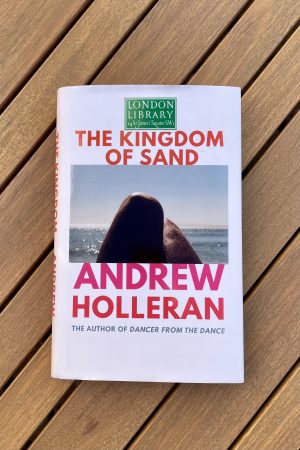
This is a novel about loneliness and death. I decided to read it after seeing a positive review in the TLS.
You may know that Andrew Holleran is a much-celebrated American author, credited with several classic works of American gay literature. I haven’t read any of them, and wasn’t previously aware of the author.
The Kingdom of Sand concentrates on an American man described as being in the later part of his life, though given no specific age. He has moved from New York to Florida, and tries to come to terms with his own loneliness and mortality. He finds connections in slightly seedy locations, like pornographic video stores. He ultimately befriends another gay man, twenty years his senior, with whom he spends time watching old movies.
Holleran’s novel has been well-received, and I can understand that it is an unusual portrait of a character and situation not often discussed in literature. However, I didn’t really enjoy it. I found the narrator’s sarcastic tone a bit off-putting. The narrator has very different perceptions and preferences to my own (redolent of his very different life experience) which meant that I struggled to see the generality in some of the broader observations Holleran made, particularly around universal themes such as death and dying.
I’m glad this book exists, but I don’t think it will live long in my memory, and I wouldn’t particularly fancy re-reading it.
With thanks to The London Library for lending me a copy.
This post was filed under: What I've Been Reading, Andrew Holleran, Aravind Jayan, Jia Tolentino, Lillian Fishman, Sathnam Sanghera.
